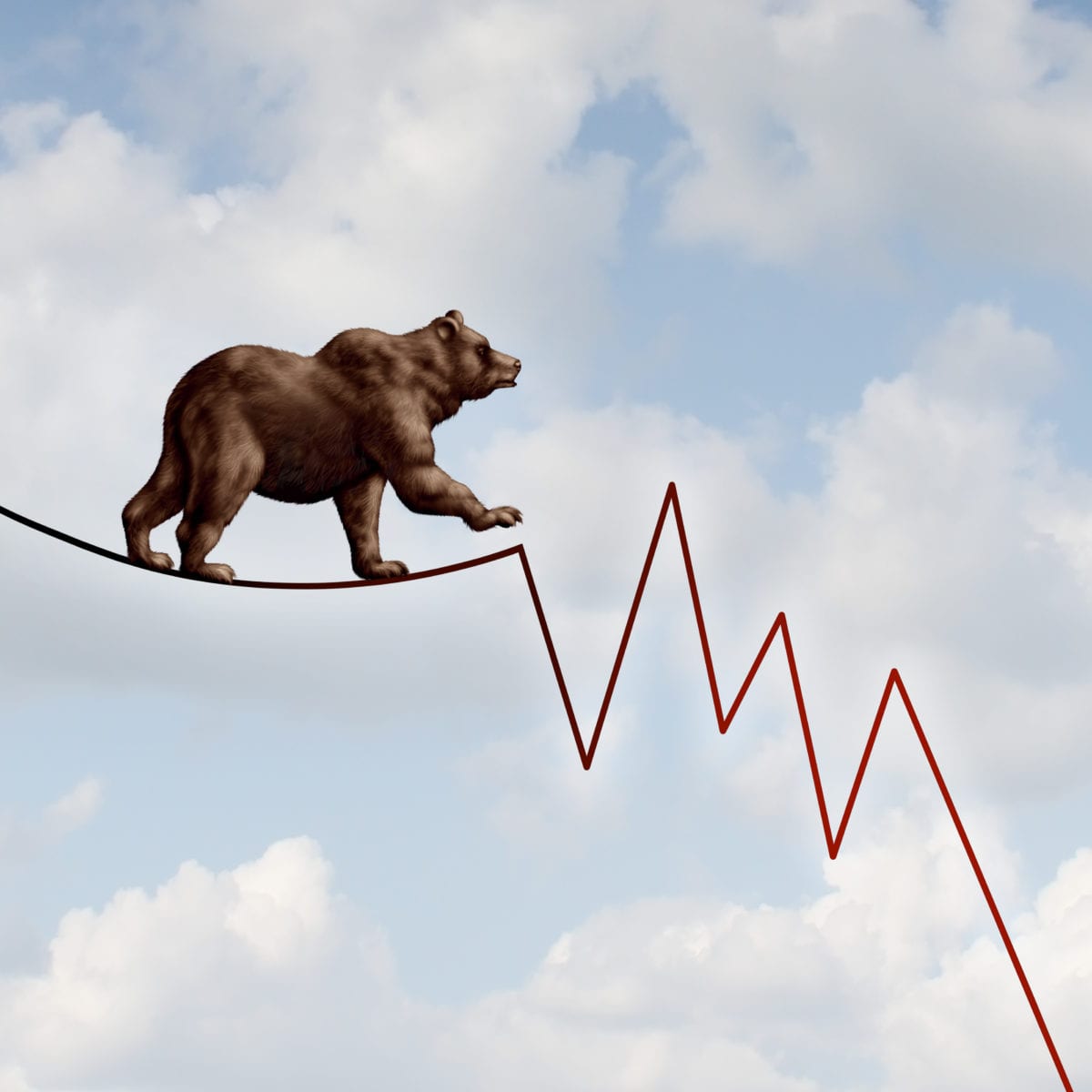Physical Address
304 North Cardinal St.
Dorchester Center, MA 02124

Stephen Colbert hates bears. He once said…
“Bears are soulless, godless, rampaging killing machines. They are on the list of things that will kill you. They are Satan’s minions and the TRUE symbol of evil.
Bears’ strong vitality and resilience makes them one of Mother Nature’s nearly unkillable animals. A bear has never been downed by any less than five gunshots. Combinations of high explosives, assault weapons, and trebuchets have been known to only piss the bear off. Why can man-kind put a man on the moon, but not invent a weapon that can take down Big-Yogi?
(Also, Koalas aren’t really bears.)”
If you need any more proof about how evil bears are, just look at this photo…

Okay so maybe we, and Stephen Colbert, are being a little tongue-in-cheek about bears (Colbert’s actually donated money to aid real life bears and their environment).
But you know what kind of bear really does suck?
The bear market.
A bear market is when one or more stock market indices (ie. S&P 500, Dow Industrials Average) drop by 20% or more off a previous high. This drop usually occurs over 2 months or more.
Now the good news is that, historically, bear markets don’t tend to last that long. Typically they’re over in less than 18 months. However, some can go on for much longer.
No matter how long they last, however, they can crush the value of your investments and cause a whole lotta pain to a whole lotta investors.
Bear markets are generally caused by “negative investor sentiment”. That basically means a bunch of investors think the future prospects of the economy, and stock market, suck. Which means more investors are looking to sell stocks than buy ‘em.
There are a few things that can cause bear markets. This ain’t an exhaustive list, but gives you a taste of the main causes…
Making money in a bear market ain’t easy. When the overall market is trending down, even strong companies that are still performing well in the real world can get their stock prices dragged down with everything else.
Some investors believe you should just totally drop out of the stock market when it’s in bear territory. Sounds like good advice but, trouble is, most folks (even the experts!) don’t know when a bear market is happening til it’s too late.
By selling too late, they fall into the classic trap of panicking and selling when prices have already dropped big time. And selling low will murder your investing returns.
Unless you follow the market very closely and are an experienced investor, your best bet is not to touch your investments during a bear market.
It’s hard. I know. But, based on past performance, the market will come roaring back at some point and you don’t wanna miss out on the upswing when it happens (missing out on this, by the way, is another way to murder your returns over time).
If you believe the market is heading to bear territory, there are a few investments you can make that tend to perform well during bear markets.
One is to invest in gold. As we’ve discussed before gold usually goes up in value when the market goes down. So physical gold, gold ETFs, etc. can help your portfolio go up when the market goes down.
The other, riskier way, to make money in a bear market is to short the market. This can be a highly risky strategy, especially if you are shorting market ETFs like the SPY, QQQ, etc.
However, you can also invest in an ETF that shorts the market (ie. you buy the ETF, expecting it to increase in value while the managers managing the ETF take care of placing and managing the short trades).
An example is the SDOW ETF which shorts the Dow Industrial Average.
The idea behind an ETF like this is if the markets fall 5% in value, the ETF will rise about 5% in value. There are some that are even more aggressive and try to amplify returns. For example, if the market falls 5%, the ETF will rise about 10% or 15% in value.
Again, this is more for experienced investors and those who have some money they’re okay losing, but it’s a way to make money in down markets while everyone else is curled up in a fetal position licking their wounds.
Bear markets happen. And if you’re in the market long enough, you’re gonna experience one sooner or later.
The key is not to panic and fall into the trap of selling low and buying high.
Your best bet is to stay the course and/or hedge your portfolio with some investments that will go up when the bear market ravages the rest of your portfolio for a while.